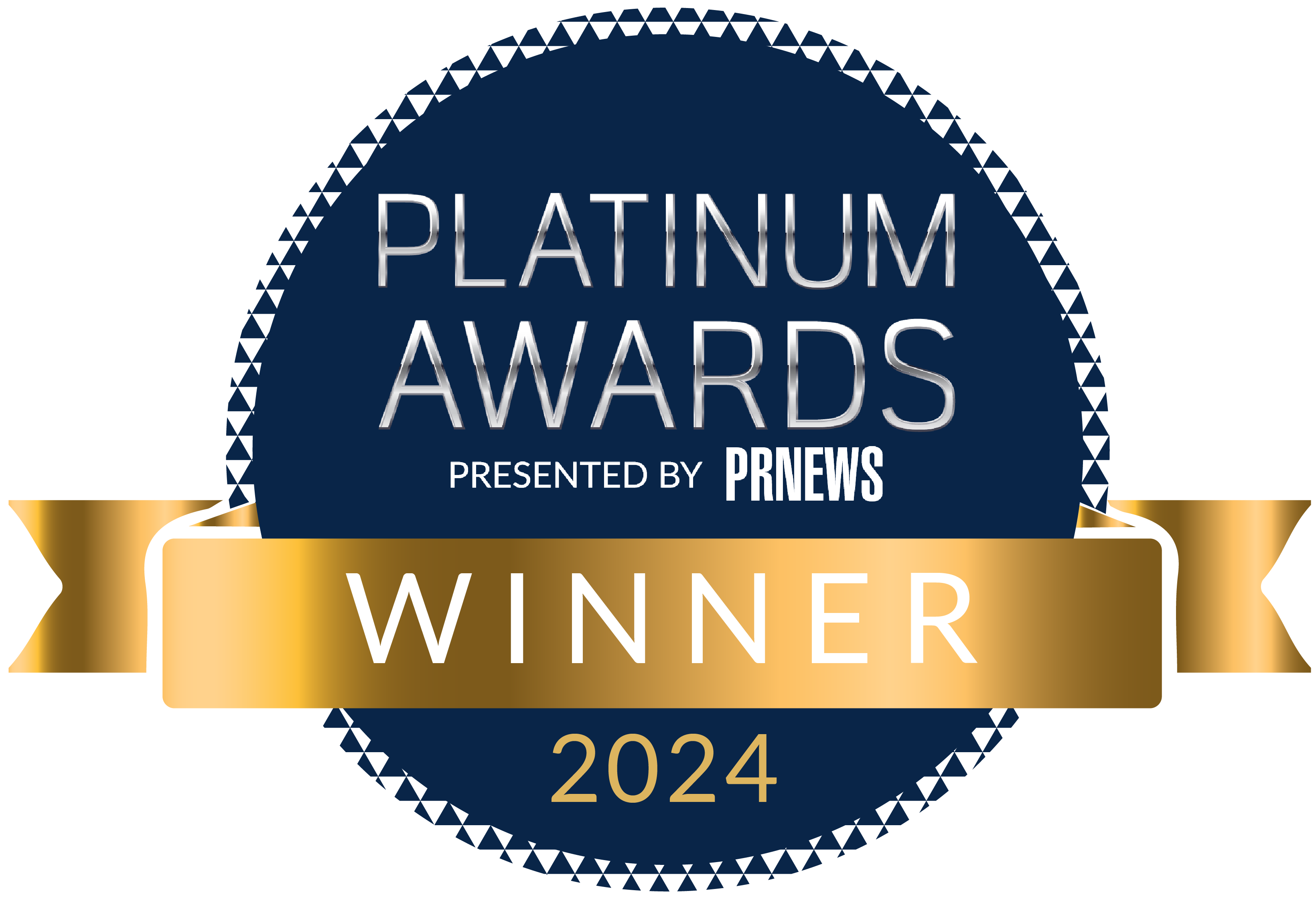Wikipedia is a highly visible part of a company’s image, yet most organizations don’t have a strategy for controlling what appears on their page. Since its inception in 2001, Wikipedia has grown to be the 7th most visited website on the internet, getting an average of 18 BILLION views per month.
That’s a lot of page views.

In fact, a 2011 Pew Research study found that 53% of adult internet users consult Wikipedia. The site is most popular among those with a college degree, with around 69% of those users visiting it.
Let’s take a look at how Wikipedia affects a company’s online reputation.
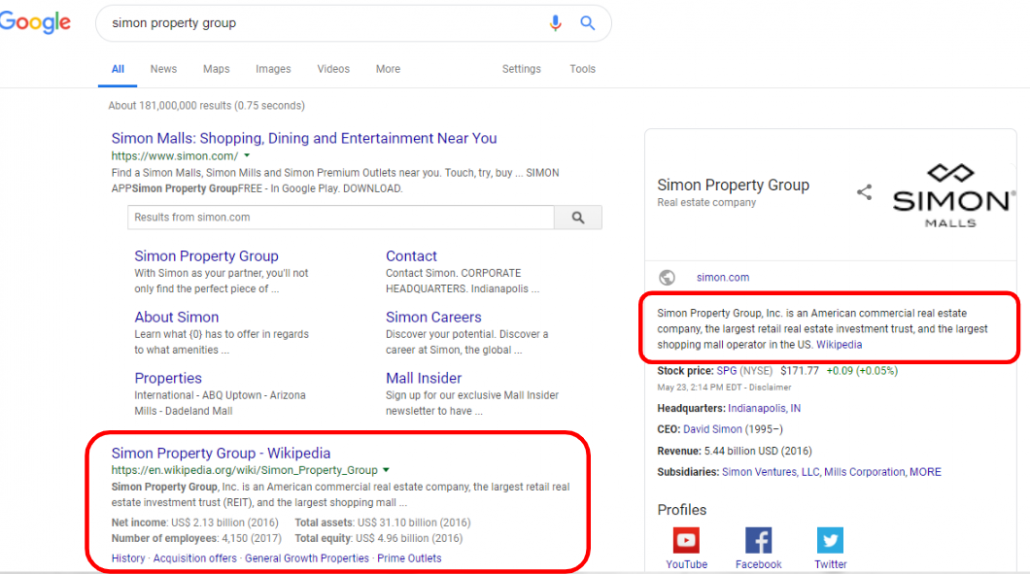
For starters, Wikipedia is ubiquitous, meaning it appears just about everywhere. For example, it almost always shows up as a top 3 search result, and it populates the right side of web searches – you’ll see it directly under a company’s logo. You’ll notice that Wikipedia also provides a space for a description preview, and includes an easy link to the result’s page.
Bonus: Aside from the high visibility, having a Wikipedia page can be a great tool for pushing down unfavorable search results.
A strong company Wikipedia page will accomplish a few things: it will accurately describe what a company does, it will briefly outline company history, it will list core products and services, and it will mention current leadership and notable awards.
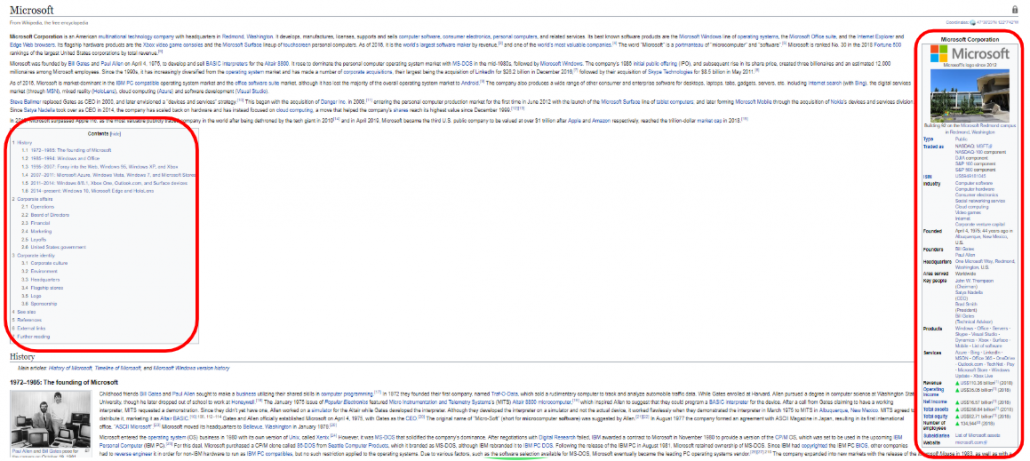
The page’s infobox should also be complete with the standard information and the current company logo (and sometimes older logos, listed as such). This can be important to consider following a rebranding or merger.

Combining existing Wikipedia pages and updating company name/branding is time consuming but necessary. Remember, Wikipedia is a definitive 3rd party source for consumers, investors, and the press. Especially given where it appears in search results, it is much more likely that someone’s impression of the company comes from what appears in Wikipedia (and the Google Knowledge Panel) than a press release buried on your website.
The primary goal when creating/editing a company’s page should be to increase content regarding positive information and company initiatives. This ties in the 3rd party narrative to your core company messaging.
When your page is strong, and you want to focus on increasing your brand’s visibility, look to Wikipedia categories. Wikipedia indexes all of its articles into searchable categories. The more categories a page has the more places you’ll appear throughout Wikipedia, increasing your visibility.

It can also be useful to spotlight your company on “related pages”. For example, if you happen to work in the education software space it might be nice to get a mention of your company/product/founder on Wikipedia’s page for Education Technology. Expanding your “footprint” in Wikipedia is a great way to improve your company’s omnipresence.
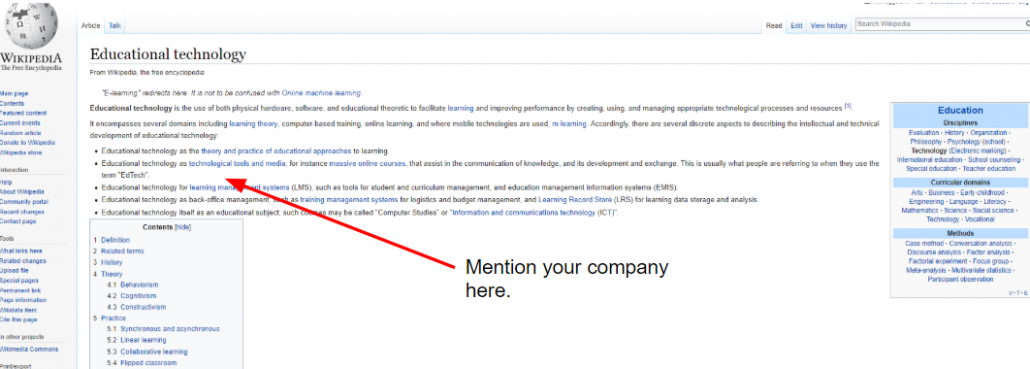
Unfortunately, Wikipedia can also be a place where controversies appear. Fortunately, controversies need to be well sourced (with verified citations) just like anything else on Wikipedia. Sometimes, controversial controversies (I think that’s an official term from my PR 101 college course) can even be removed from a page altogether.
However, in most cases it comes down to content management. Expanding and reorganizing page content, and reframing the controversy can go a long way in minimizing the impact it might have on a page visitor.
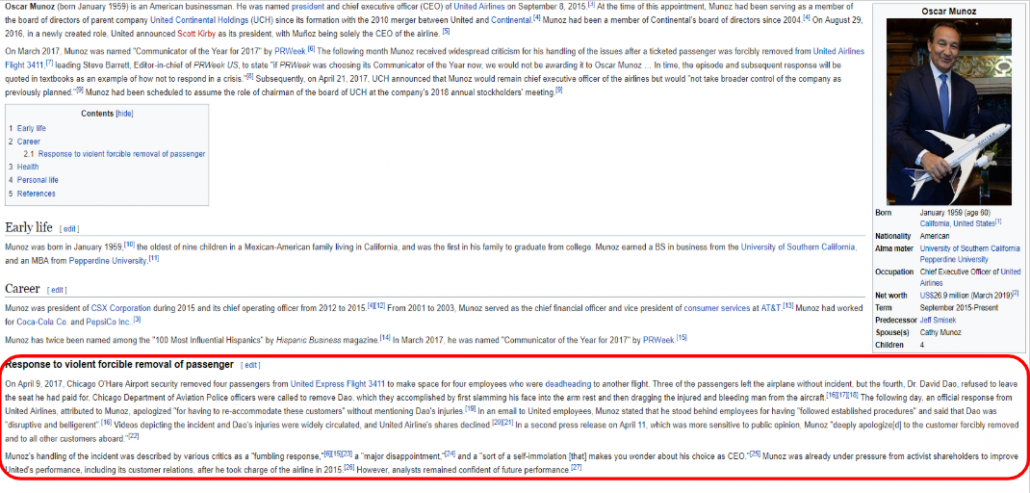
While some have chosen to create a Wikipedia page, others have had little to nothing to do with their corporate pages. Regardless of which group you’re in, deploying a strategy for managing the page content is paramount to protecting your online reputation. You should start with educating yourself on best practices and then dedicating internal resources to monitor and maintain your pages. If all that sounds like too much work (trust us, it is), consult an expert!

This is a guest post from The Mather Group.


